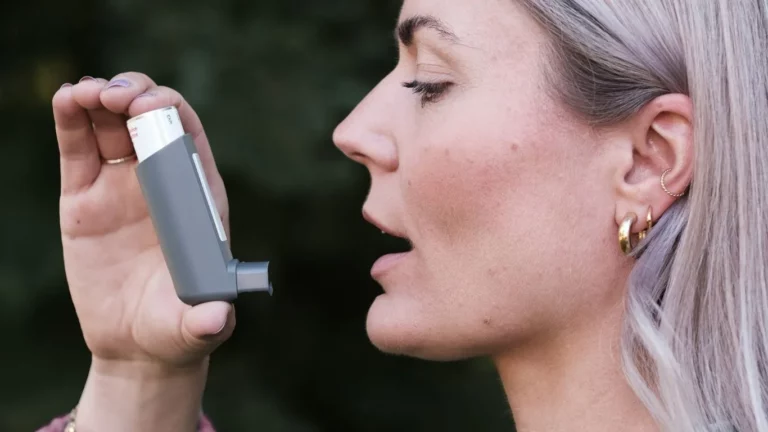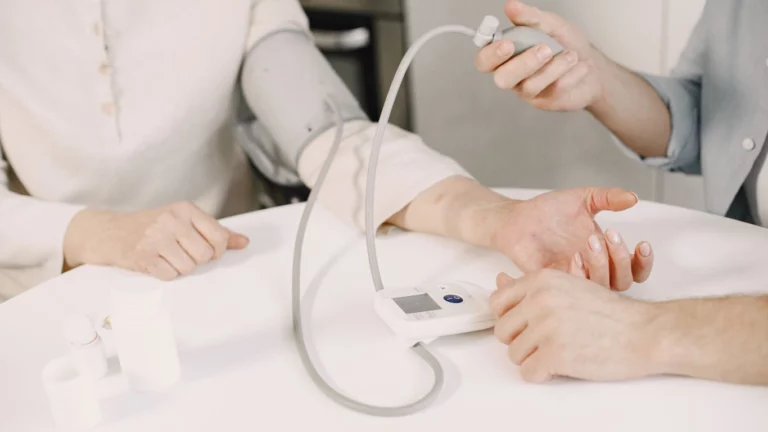How High Cortisol Levels Contribute to Hypertension Risks
As a Hypertension expert, I’ve worked closely with patients over the years to understand the complexities of high blood pressure. One factor that often flies under the radar in hypertension discussions is the role of stress, particularly how it can affect our bodies in profound ways. When we think of stress, we usually associate it with emotional strain, anxiety, or work pressure.
However, the chemical response in our bodies during stressful situations is far more impactful than we realize, especially when it comes to hypertension. In this article, we’ll explore the impact of high cortisol on hypertension and how this hormone, released in response to stress, could be silently contributing to your blood pressure woes. Let’s dive into this often-overlooked link and uncover how stress could be making your hypertension worse.
The Connection Between Cortisol and Hypertension

If you’ve ever felt the rush of anxiety or pressure in your body during a stressful situation, you’ve probably experienced the physical effects of cortisol first-hand. Cortisol, often referred to as the “stress hormone,” is produced by the adrenal glands in response to stress. It plays a vital role in helping us respond to danger by increasing blood sugar levels, enhancing brain function, and boosting energy. But here’s the catch: when cortisol levels stay high for prolonged periods, the impact on our bodies can be less than ideal, especially in the context of hypertension.
As someone who has seen countless patients struggle with the challenges of managing hypertension, I’ve noticed that chronic stress and consistently elevated cortisol levels can lead to long-term issues with blood pressure regulation. The most troubling aspect of this is that you might not even realize that stress is a contributing factor to your condition. It’s easy to overlook stress as something that’s simply “part of life” – but the reality is that if left unchecked, it can have devastating effects on your health.
How Cortisol Affects Blood Pressure
Cortisol has a direct relationship with blood pressure. When released, it helps the body deal with stress, but it also triggers a cascade of responses that can elevate blood pressure over time. One of the primary ways cortisol influences blood pressure is by increasing sodium retention in the kidneys. Sodium, when retained, leads to increased fluid in the blood vessels, raising the volume of blood circulating throughout the body. This, in turn, puts pressure on the walls of your blood vessels, resulting in higher blood pressure.
But that’s not all – cortisol also contributes to the narrowing of blood vessels, which can further exacerbate hypertension. When blood vessels constrict, the flow of blood becomes restricted, and the heart has to work harder to pump blood through the body. This added strain can make it more difficult for people with hypertension to maintain a healthy blood pressure level. For those already dealing with high blood pressure, this effect is amplified, making stress management crucial in the battle against hypertension.
The Vicious Cycle: Stress and Hypertension

One of the most frustrating aspects of the connection between cortisol and hypertension is the vicious cycle it creates. Stress leads to high cortisol levels, which in turn contribute to increased blood pressure. But guess what? High blood pressure can also increase stress levels! It’s a never-ending loop, and if you’re not careful, it can spiral out of control.
Take, for example, someone who experiences ongoing work-related stress. Their cortisol levels rise, leading to increased blood pressure. In turn, the higher blood pressure can cause anxiety and fear about their health, further raising their stress levels. This cycle can keep repeating itself, making it even harder for individuals to manage both their stress and blood pressure effectively.
In my practice, I’ve worked with patients who didn’t realize how stress and high cortisol levels were directly affecting their blood pressure. They’d focus primarily on medication or dietary changes, while neglecting the role stress was playing in their condition. But once we started addressing stress and its impact on cortisol levels, their hypertension management plan became more effective, leading to improved results over time. This just goes to show how important it is to address all factors, including stress, when managing hypertension.
Stress-Induced Blood Pressure Spikes
It’s not just the chronic stress that has an impact; acute, sudden stress can also trigger sharp spikes in blood pressure. Think about moments of intense stress – you might experience a rush of adrenaline, your heart rate increases, and you feel that tightness in your chest. During these moments, cortisol surges into your bloodstream, along with other hormones like adrenaline, causing your blood vessels to constrict and your heart to beat faster. This temporary spike can be dangerous for individuals with hypertension, as it can push their already elevated blood pressure even higher.
What’s particularly concerning is that these spikes in blood pressure can sometimes occur without you even realizing it, especially in high-stress environments or during moments of emotional turmoil. For people with underlying hypertension, this can be a serious risk. Managing stress is not only about preventing chronic issues but also about being mindful of sudden emotional triggers that can cause dangerous spikes.
The Role of Lifestyle and Stress Management in Lowering Cortisol

Thankfully, managing cortisol levels and reducing its impact on hypertension is possible. One of the most effective ways to combat the negative effects of cortisol on blood pressure is by incorporating stress management techniques into your daily routine. Exercise, relaxation techniques, and mindfulness practices can all help lower cortisol levels, improve your body’s response to stress, and ultimately help manage your blood pressure.
In my experience, patients who focus on both their physical and emotional health tend to see better results when managing hypertension. Regular physical activity, like walking, yoga, or swimming, can help reduce stress hormones and improve cardiovascular health. Similarly, practicing relaxation techniques, such as deep breathing, meditation, or progressive muscle relaxation, can significantly reduce the physical effects of stress, helping to lower cortisol levels and prevent the long-term damage it causes to your blood pressure.
Additionally, getting enough sleep and maintaining a balanced diet can also play crucial roles in regulating cortisol. Lack of sleep and poor nutrition can lead to higher cortisol levels, making it even harder to manage your hypertension effectively. So, when you’re working on improving your blood pressure, don’t just focus on the numbers – consider how your lifestyle choices, sleep habits, and stress management practices are impacting your cortisol levels.
Understanding the Physiological Impact of Cortisol on Your Heart

As we continue our exploration of how cortisol impacts hypertension, it’s essential to understand just how deeply this hormone affects your cardiovascular system. When stress triggers a spike in cortisol, your body is essentially in a constant state of “fight or flight.” While this response is helpful in short bursts, prolonged activation can be problematic, especially when it comes to your heart health.
One thing I’ve witnessed throughout my years of practice is that cortisol doesn’t just impact blood pressure—it also plays a critical role in heart disease. Elevated cortisol can cause changes in how your heart functions, often leading to increased heart rate, and over time, this constant strain can lead to issues like arrhythmias (irregular heartbeats). I’ve seen many patients who were stressed out but unaware that their mental and emotional health was impacting their heart in such profound ways.
The Stress Hormone’s Impact on the Heart’s Function
When cortisol levels rise, they stimulate the release of other hormones such as adrenaline and noradrenaline. These hormones increase your heart rate and blood flow, which is great in the short term if you need to run from danger. But in the long run, when stress becomes chronic, your heart has to work harder than it should. The constant increase in heart rate and the strain on blood vessels can make you more prone to hypertension-related complications like heart attacks, strokes, and even heart failure.
Additionally, cortisol can increase the buildup of plaque in your arteries. This contributes to atherosclerosis, a condition where the blood vessels become narrowed and hardened due to plaque. Atherosclerosis is a major player in both high blood pressure and heart disease. So, when cortisol is consistently elevated, it creates a breeding ground for cardiovascular problems that you might not even realize are developing. It’s a silent threat that builds up over time, and that’s why I’m such a big advocate for managing stress effectively in order to protect your heart.
How Chronic Stress Makes Hypertension Worse

Chronic stress is one of the most insidious factors when it comes to hypertension. Unlike acute stress, which may cause temporary spikes in blood pressure, chronic stress has a more lasting effect on your health. Cortisol, when consistently elevated due to ongoing stress, wreaks havoc on both the cardiovascular and renal systems. It’s a slow burn that takes a toll on your body day after day.
In my clinical experience, patients who are under constant stress tend to see their blood pressure steadily creep up over time. The body’s inability to return to baseline levels after stress is a major factor here. Cortisol’s effect on sodium retention, as mentioned earlier, is exacerbated when stress becomes chronic. Your kidneys struggle to keep up with the fluid buildup, and before you know it, the blood pressure readings start to reflect the internal turmoil your body has been experiencing.
It’s a pattern I’ve seen time and time again—people who are juggling work, family, finances, and personal issues often neglect the impact that stress is having on their bodies. In fact, many of my patients were surprised to find that managing their daily stress was one of the most important pieces of the puzzle in controlling their hypertension. Acknowledging the role of stress and cortisol in your health is the first step toward making real changes.
The Link Between Sleep and Cortisol in Hypertension
Sleep and stress are intricately connected. Poor sleep can elevate cortisol levels, and in turn, elevated cortisol can interfere with your sleep. As I’ve worked with individuals dealing with hypertension, one common thread has been poor sleep hygiene. Whether it’s trouble falling asleep, waking up in the middle of the night, or simply not getting restful sleep, the impact on cortisol levels is undeniable.
Chronic sleep deprivation triggers a rise in cortisol, which, as we now know, directly affects blood pressure. When your body doesn’t get adequate rest, it’s harder to recover from the stresses of the day. Elevated cortisol levels during the night can prevent deep, restorative sleep and disrupt your circadian rhythm. Over time, this cycle of poor sleep and high cortisol can make it nearly impossible to keep your blood pressure in check.
But it’s not just about the quantity of sleep. The quality of your sleep matters too. Studies have shown that people who experience interrupted or poor-quality sleep tend to have higher levels of cortisol the following day. This, in turn, has a cascading effect on blood pressure. I always encourage my patients to pay attention to their sleep habits and try to establish a consistent sleep routine, as it’s a simple yet powerful way to keep cortisol and blood pressure levels under control.
Managing Cortisol to Improve Hypertension: Stress Management Techniques

The good news is that there are plenty of ways to manage cortisol levels and reduce its harmful impact on hypertension. In my practice, I’ve helped numerous patients learn how to lower cortisol through lifestyle changes and stress management techniques. Let’s go over some of the most effective methods I recommend.
Exercise: A Natural Cortisol Reducer
Exercise is one of the most powerful tools we have for managing both cortisol and blood pressure. Physical activity helps lower cortisol levels by triggering the release of endorphins, the body’s natural “feel-good” hormones. It’s a win-win situation—exercise not only helps to regulate stress but also strengthens your heart and improves your overall cardiovascular health.
What’s important to note here is that the type of exercise matters. Intense, prolonged workouts can sometimes elevate cortisol, so I always recommend finding a balance. Activities like yoga, walking, swimming, or moderate-intensity aerobic exercises are fantastic for reducing stress without overloading the body with additional cortisol. Personally, I’ve seen the most success with patients who incorporate a mix of both physical activity and mindfulness exercises into their daily routines.
Relaxation Techniques: Meditation and Deep Breathing
Meditation, deep breathing exercises, and progressive muscle relaxation are some of the most effective ways to counteract the effects of stress and reduce cortisol levels. Even just a few minutes a day of focused breathing or guided meditation can make a significant difference in how your body responds to stress.
Incorporating mindfulness practices into your routine helps activate the parasympathetic nervous system, which promotes relaxation and counteracts the “fight or flight” response. By reducing cortisol levels through relaxation techniques, you can help manage your hypertension while fostering a calmer, more balanced mental state.
Dietary Choices and Their Role in Managing Cortisol and Hypertension

In addition to exercise and stress management, what we eat can play a significant role in regulating cortisol levels and managing hypertension. Throughout my career as a Hypertension expert, I’ve worked with many patients who underestimated the impact of their diet on their blood pressure. However, the foods we choose to put into our bodies can either help calm the stress response or exacerbate it. It’s important to adopt a diet that supports both mental and cardiovascular health.
The Impact of Sodium and Processed Foods on Cortisol
One of the biggest culprits in the diet of people with high blood pressure is excessive sodium intake. High sodium levels can increase blood pressure, which already contributes to the strain caused by elevated cortisol. The problem is that many processed foods, while convenient, are often loaded with sodium and unhealthy fats. These types of foods not only elevate cortisol levels but also hinder the body’s ability to effectively manage stress.
Through years of working with patients, I’ve noticed that those who cut back on processed foods and reduce their sodium intake often experience an improvement in both their blood pressure and stress levels. Instead, I recommend focusing on whole foods like fruits, vegetables, whole grains, and lean proteins. These foods help regulate the body’s stress response and support overall cardiovascular health, which is essential for managing hypertension.
Foods That Help Lower Cortisol
Now, let’s talk about foods that actively help lower cortisol levels. Incorporating nutrient-dense foods into your diet can make a real difference in how your body manages stress. For example, foods rich in magnesium, like leafy greens, nuts, seeds, and legumes, help regulate cortisol. Omega-3 fatty acids, found in foods like fatty fish (salmon, mackerel), flaxseeds, and walnuts, also play a crucial role in managing cortisol levels. These fats have anti-inflammatory properties and can help reduce the body’s stress response.
Moreover, antioxidant-rich foods such as berries, citrus fruits, and dark chocolate (in moderation) can help neutralize the oxidative stress caused by cortisol. In my practice, I often emphasize the importance of a balanced, anti-inflammatory diet, as it not only reduces stress but also helps lower blood pressure naturally.
Supplements That Can Support Cortisol Regulation

While making lifestyle changes like improving your diet and managing stress are key to regulating cortisol, supplements can also play a supporting role. However, it’s important to remember that supplements should never replace a balanced diet or a healthy lifestyle. They should complement your efforts to control cortisol and manage hypertension.
Adaptogens: Natural Stress Relievers
Adaptogenic herbs, such as ashwagandha, rhodiola, and holy basil, are known to help the body adapt to stress and regulate cortisol levels. These herbs have been used in traditional medicine for centuries, and recent research supports their ability to help lower cortisol in people experiencing chronic stress. Personally, I’ve seen many patients benefit from incorporating adaptogens into their routine, especially those who have tried various stress-management techniques but still struggle with elevated cortisol.
Ashwagandha, in particular, has been shown to significantly reduce cortisol levels and improve the body’s response to stress. It’s something I often recommend to patients as part of their overall hypertension management plan. Rhodiola, on the other hand, is great for improving energy levels and mental clarity, and it can also support healthy cortisol levels during periods of intense stress.
Magnesium and Vitamin C for Cortisol Regulation
Magnesium is another supplement I frequently recommend to patients dealing with high cortisol levels. It helps relax the nervous system and supports the proper function of the adrenal glands, where cortisol is produced. Many people are deficient in magnesium, and this can exacerbate the stress response, leading to higher cortisol levels. A daily magnesium supplement can help mitigate this issue, particularly when combined with a diet rich in magnesium-rich foods.
Vitamin C is also a powerful ally in reducing cortisol. During times of stress, the body’s need for vitamin C increases. By ensuring you get adequate levels of this important nutrient, you can help support adrenal function and reduce the amount of cortisol circulating in your system. I often suggest vitamin C supplements or foods rich in the vitamin, like citrus fruits, bell peppers, and strawberries, to my patients.
The Importance of Regular Monitoring and Professional Guidance
As we’ve seen, the relationship between cortisol and hypertension is complex, but with the right approach, it is manageable. That being said, it’s essential to regularly monitor both your blood pressure and cortisol levels, especially if you’ve been diagnosed with hypertension or are at risk for it. One of the most valuable things you can do for your health is to stay proactive and informed.
Throughout my career, I’ve seen the positive effects of combining lifestyle changes, stress management techniques, and professional medical guidance to tackle the issue of high cortisol and hypertension. Regular check-ups with your healthcare provider are key to understanding how stress and cortisol are affecting your blood pressure, as well as to making adjustments to your treatment plan as needed. Whether it’s through blood tests, blood pressure monitoring, or tracking your stress levels, staying on top of your health is vital.
Tracking Your Progress
In my practice, I’ve encouraged patients to keep a stress and health journal to help track their cortisol levels, blood pressure readings, and any changes in their lifestyle or emotional well-being. This can help identify patterns and give both you and your healthcare provider a clearer picture of what’s going on. Additionally, don’t be afraid to reach out to a professional for support when dealing with chronic stress. Therapy, counseling, and stress-reduction programs can offer tailored strategies to help you better manage your emotional well-being.
References
Disclaimer
The information provided in this article is intended for informational purposes only and is not a substitute for professional medical advice. Always consult with your healthcare provider before making any changes to your lifestyle, diet, or medication regimen. Individual needs and treatments may vary based on personal health conditions.

Dr. Gwenna Aazee is a board-certified Internal Medicine Physician with a special focus on hypertension management, chronic disease prevention, and patient education. With years of experience in both clinical practice and medical writing, she’s passionate about turning evidence-based medicine into accessible, actionable advice. Through her work at Healthusias.com, Dr. Aazee empowers readers to take charge of their health with confidence and clarity. Off the clock, she enjoys deep dives into nutrition research, long walks with her rescue pup, and simplifying medical jargon one article at a time.







